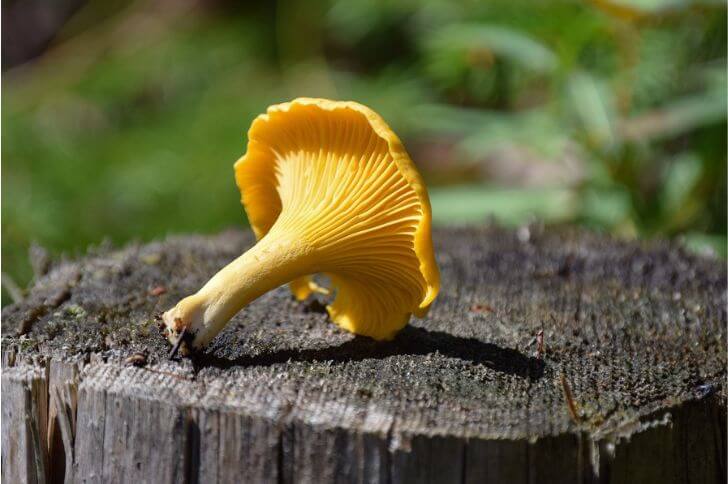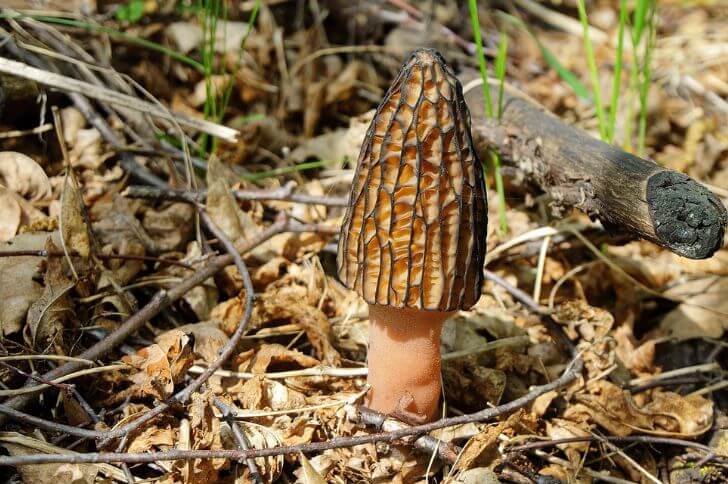What is a Mushroom Festival?
A mushroom festival is an event dedicated to celebrating and showcasing various types of mushrooms, as well as their culinary and ecological significance.
It typically includes activities such as mushroom foraging, cooking demos, lectures, workshops, and vendors selling fresh and dried mushrooms, as well as mushroom-related products such as books, artwork, and crafts.
Mushroom festivals may also feature live music, entertainment, and activities for children. These events are often held in areas where mushrooms grow naturally, such as forests or woodlands, and can attract both enthusiasts and professionals in the field of mycology.
Origins
The beginnings of these festivals can be traced back to Europe in the early 20th century. In France, the first mushroom fair was held in the early 1900s. The event was organized by a group of mushroom growers and enthusiasts who wanted to promote the consumption of edible mushrooms and showcase the different species found in the region.
In Italy, the first recorded fair was held in1985 in Bema. This region is known for its production of porcini and bolete mushrooms, and the festival was created as a way to celebrate the local mushroom industry and promote tourism in the area.
In the United States, the first mushroom festival was held in Kennett Square, Pennsylvania in 1985. Kennett Square is known as the “mushroom capital of the world,” due to its large production of mushrooms, particularly the white button mushroom.
During the first festival only about 200 vendors participated. Over 30 years later, the fair has grown and attracts over 100,000 mushroomers.
Mushroom Festivals Evolution
These festivals have evolved significantly over time, both in terms of their focus and the activities they offer. Here are some ways they have changed and developed over the years:
Expansion of festival themes: While the original mushroom festivals focused mainly on promoting edible mushrooms, today’s fairs cover a wide range of themes, including the ecological and cultural aspects of fungi. Some focus on specific types of mushrooms, such as truffles or morel mushrooms, while others explore the broader world of mushrooms.
Growth in attendance and popularity: These fetes have become more popular over time, drawing larger crowds and more media attention. As a result, they have expanded their offerings to include more activities and attractions, such as live music, cooking demos, and foraging tours.
Integration of technology: With the rise of technology, organizers have embraced new ways of engaging with attendees, such as social media promotions, online ticket sales, and mobile apps that provide festival maps and schedules.
Increased focus on sustainability: Many foraging experts now emphasize sustainable practices, such as responsible foraging and farming techniques, composting, and recycling. Some organizers even offer workshops on mushroom cultivation and home composting.
Globalization: Mushroom festivals are now held in many countries around the world, offering attendees a chance to explore the unique cultures and mushroom varieties found in different regions.
Local mushroom fetes
Kennett Square Mushroom Festival – Kennett Square, Pennsylvania: Held annually in September, this festival celebrates the town’s status as the “Mushroom Capital of the World.” It features live music, mushroom-centric food vendors, cooking demos, and guided tours of local mushroom farms.
Telluride Mushroom Festival – Telluride, Colorado: This fair is held in August and celebrates the diverse mushrooms found in the region with events such as mushroom foraging tours, lectures, workshops, and cooking demos.
Fungus Fair – Santa Cruz, California: This fair is held annually in February and features educational exhibits and guided mushroom foraging walks. It also includes a marketplace with vendors selling mushroom-related products.
Yachats Mushroom Festival – Yachats, Oregon: Held annually in October, this festival features a mushroom cook-off, guided walks, and lectures on identification and cultivation.
Mountain Mushroom Festival – Irvine, Kentucky: This festival is held in April and celebrates the morel mushroom, which is found in the Appalachian region. It includes a morel mushroom hunting contest and cooking demos
Oregon Truffle Festival: Eugene, Oregon- This fair, held in January or February, celebrates the culinary and cultural importance of truffles, with events such as truffle hunts, wine tastings, and cooking classes.
North American Mycological Association (NAMA) Annual Foray – Various locations: NAMA hosts an annual foray each year in a different location, bringing together mushroom enthusiasts from across the country for mushroom foraging, identification, and education.
Midwest Wild Harvest Festival– Prairie du Chien, Wisconsin: It is held in September, celebrates wild edibles such as mushrooms, berries, and nuts, with events such as foraging walks, cooking demos, and workshops on sustainable harvesting.
Morel Festivals
Mesick Mushroom Festival – Mesick, Michigan: This festival, held in May, celebrates the morel mushroom with events such as a parade, a carnival, a morel market, and a morel hunt.
Muscoda Morel Mushroom Festival -Muscoda, Wisconsin: Held in May, this fair features a morel contest, a carnival, a parade, and live music.
National Morel Festival – Boyne City, Michigan: Also held in May, offers events such as a morel seminar, a morel hunt, a craft show, and more.
Richmond Mushroom Festival – Richmond, Missouri: This festival is typically held at the end of April to early May. It celebrates this edible fungus with events such as a morel auction, a morel cooking contest, and a morel market.
Spoon River Valley Scenic Drive Fall Festival– Fulton County, Illinois: While not strictly a morel festival, this annual event held in October is a popular destination for mushroom hunters looking to find morels and other wild edibles in the forests of central Illinois
Popular fungi festivals around the world
There are many popular fungi fairs around the world, each with their unique focus and activities. Here are a few examples:
1. The Sagra dei Funghi fair is an annual event that celebrates the abundance of mushrooms in Italy. The festival usually takes place in the fall, typically in September or October, when the weather is cooler and the mushrooms are in season.
2. Blue Mountains Mushroom Festival, Australia: This fair offers mushroom-themed activities as well as a space to kickback and relax.
3. Pucon Mushroom Festival, Chile: This festival offers workshops on the culinary uses of mushrooms, as well as tours of local mushroom farms and forests.
Common types mushrooms showcased
Mushroom fairs typically feature a wide variety of mushroom species, both wild and cultivated, depending on the region and the focus of the festival. Here are some common types of mushrooms featured at mushroom festivals:
Portobello mushrooms: These large, meaty mushrooms are commonly used in cooking and are often featured in mushroom-themed dishes and cooking demonstrations at festivals.
Shiitake mushrooms: These flavorful mushrooms are popular in Japanese cuisine and are often used in soups, stir-fries, and other dishes. They are commonly grown commercially and may be featured in cultivation workshops at festivals.
Morel mushrooms: These prized wild mushrooms have a distinctive, nutty flavor and are highly sought after by mushroom hunters and chefs. Morel-themed festivals may offer morel identification workshops, guided hunts, and cooking contests.
Oyster mushrooms: These delicate, flavorful mushrooms are commonly grown commercially and are popular in Asian and vegetarian cuisine.
Chanterelle mushrooms: These delicate, trumpet-shaped mushrooms have a distinctive, fruity flavor and are often used in French and Scandinavian cuisine. They are often featured in cooking demos and tastings at festivals.
Truffle mushrooms: These highly prized, aromatic fungi are often used in upscale cuisine and are featured at truffle-themed festivals. Events may include truffle hunts, cooking classes, and wine tastings.
Lion’s Mane:These fungi have a unique appearance with a white, fluffy texture. They are often featured in educational workshops.
Activities that typically take place at these festivals
Mushroom foraging walks: Guided walks through nearby forests or fields to search for wild mushrooms, led by experienced hunters who can help identify different species and provide tips for safe and sustainable foraging.
Cooking demos: Chefs or food enthusiasts demonstrate how to cook with different types of mushrooms, often offering samples and recipes for attendees to try at home.
Mushroom tastings: A chance for attendees to sample a variety of mushrooms, often prepared in different ways, such as sautéed, grilled, or pickled.
Educational workshops: A range of workshops may be offered, such as mushroom identification, cultivation, and uses.
Fungi-themed markets: Vendors may sell fresh and dried mushrooms, growing kits, mushroom art, and other related products.
Live music and entertainment: Many festivals feature live music and entertainment, offering a carnival atmosphere and entertainment for attendees.
Cooking contests: Attendees can participate in cooking contests or watch chefs compete to prepare the best mushroom dish.
Mushroom-themed dinners: Special dinners featuring dishes prepared with mushrooms, often using locally sourced ingredients.
Kids’ activities: Some festivals offer activities for children, such as face painting, crafts, and mushroom-themed games.
Final Thoughts
If you have never attended a mushroom festival before, I highly encourage you to do so. These fairs offer a unique and fun opportunity to learn more about the diverse world of fungi and their many benefits. Whether you are a seasoned enthusiast or simply curious about this versatile and healthy food, there is something for everyone at these festivals.
Attending a mushroom festival can not only be a fun and educational experience, but it can also support local communities and businesses that rely on the mushroom industry. By participating in events such as guided foraging walks, cooking demos, tastings, and workshops, you can deepen your understanding of mushrooms and their cultural and ecological significance.
So why not mark your calendar and plan to attend a mushroom festival near you? Whether you are interested in trying new and exotic mushroom varieties, learning about sustainable harvesting practices, or simply enjoying the festive atmosphere and delicious food, there is something for everyone at a fungi. Don’t miss out on this unique and exciting opportunity to explore their diverse world and all that they have to offer!
Hi There,
My name is Jenny. I’m the Chief Editor at Try Green Recipes and besides making yummy and healthy foods for my kids, grandkids, and friends. I’m new to the blogging world but I believe what I have to share is unique and will bring joy to your home. If you are adventurous and want try something tasty, let’s get started.

